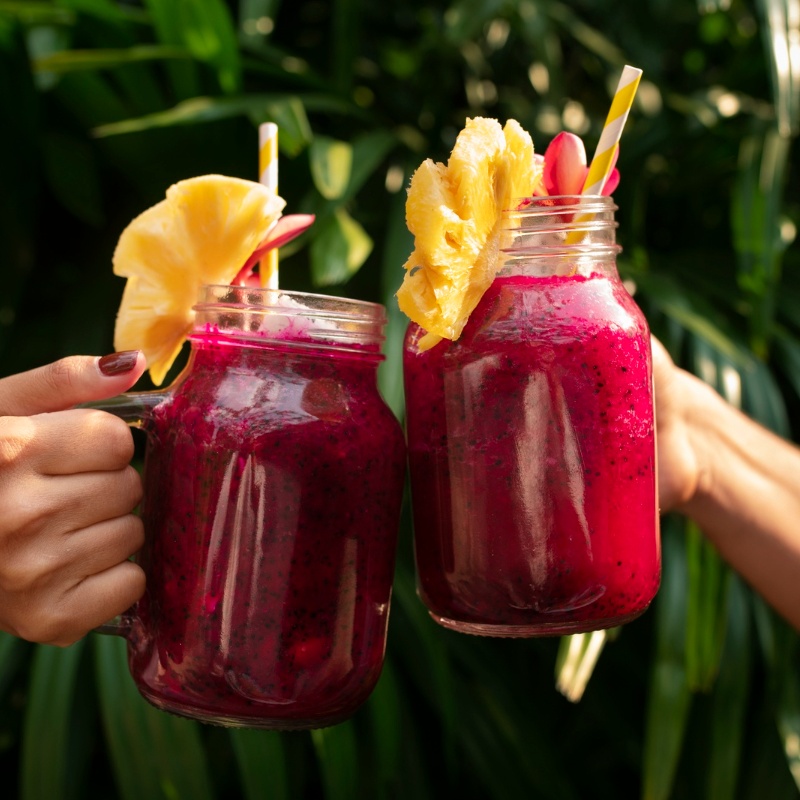Watch Out for the 9 Side Effects of Stevia: Use it Wisely for a Healthy Life
Stevia has long been a favored natural sweetener and has no calories. But the side effects of stevia can overthrow the good in this plant-based product.
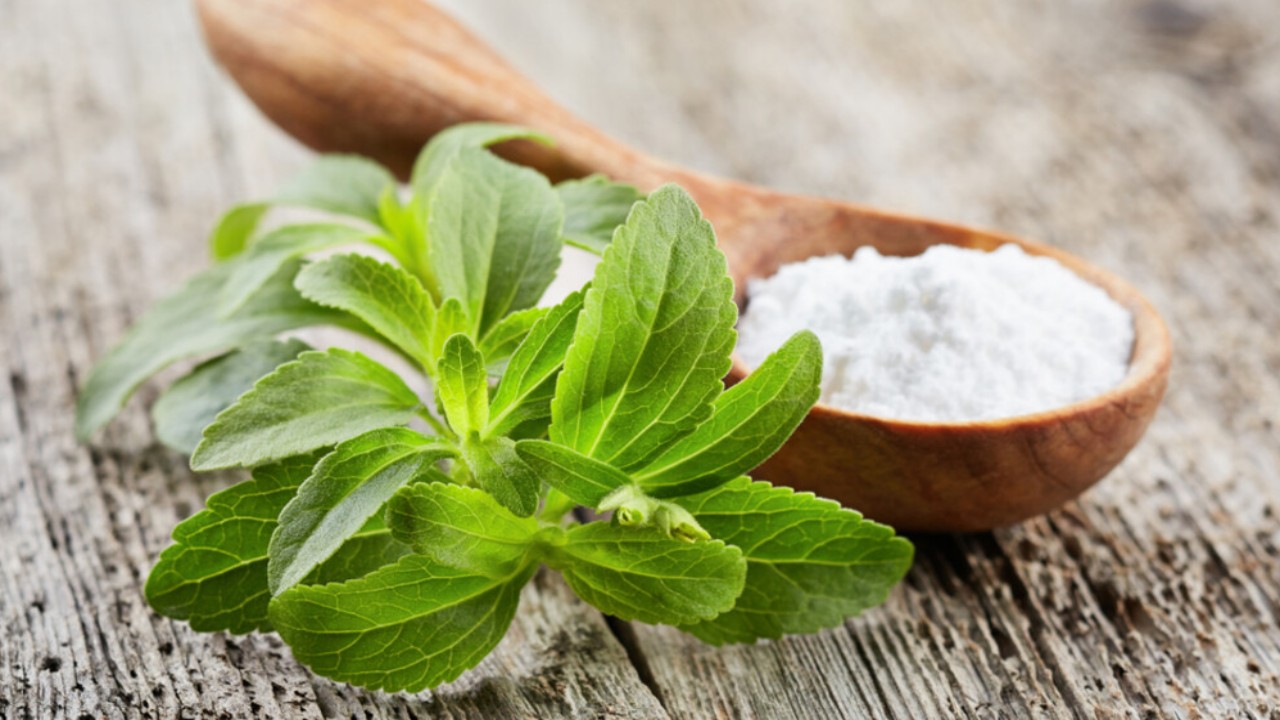
Sugar has caught a bad name for itself, and rightfully so. According to Dt. Deepti Lokeshappa, Senior Consultant, Nutritionist, and Dietitian, Motherhood Hospital, Bengaluru, “Sugar has caught a bad name for several reasons, primarily due to its potential negative effects on health and well-being. Some of the key reasons sugar has a negative reputation include various health problems like type 2 diabetes, heart disease, and dental issues; blood sugar spikes and crashes in blood sugar levels, leading to feelings of fatigue; dental problems like tooth decay and cavities; addiction to sugar etc.
Most people are trying to avoid artificial sugar and are looking for natural sweeteners. Stevia is one of the leading names in the natural sweetener category. But you must watch out for the side effects of Stevia. The leaves of the stevia plant are uniquely sweet, but its chemicals also react with many things in your diet. Many companies also mix Stevia with artificial sweeteners, which can harm the body.
Sharing the difference between natural and artificial sweeteners, our contributor Mary Sabat, RDN, LD, and Ace Certified Trainer, says, “Natural sweeteners, like stevia, are derived from plants or other natural sources and typically contain fewer calories than sugar. They are considered more "natural" because they undergo minimal processing. In contrast, artificial sweeteners, such as aspartame, saccharin, and sucralose, are synthetic compounds created in a lab. They are often much sweeter than sugar and contain few to no calories, making them a popular choice for those seeking to reduce calorie intake. While both types of sweeteners can be used as sugar substitutes, artificial sweeteners are highly processed and may have a different taste profile, while natural sweeteners may retain some of the nutrients present in their source ingredients.”
What Is Stevia?
Stevia product is a natural sweetener. It is found in the leaves of the Stevia rebaudiana plant. It is about 20x times sweeter than sugar but has no calories (1). People who want artificial sugar-free sweeteners often go for Stevia. Stevia comes from South America, and the Guarani people have used it for ages. The Guarani used Stevia to sweeten their food and treat various medical conditions (1).
Stevia sweetener came to the United States in the 1970s. However, it only gained popularity in the 2000s. There are two main types of Stevia: rebaudioside A and stevioside. Rebaudioside A is the sweetest type of Stevia and the most commonly used type of Stevia in the US. Stevioside is less sweet than rebaudioside A but has a more bitter aftertaste (1).
Stevia is a safe sweetener for most people. However, the side effects of Stevia include nausea, vomiting, and diarrhea. Stevia is available in various forms, including powder, liquid, and tablets. While you cannot cook with it, you can use it in coffee, tea, smoothies, and even some baked goods.
Uses of Stevia
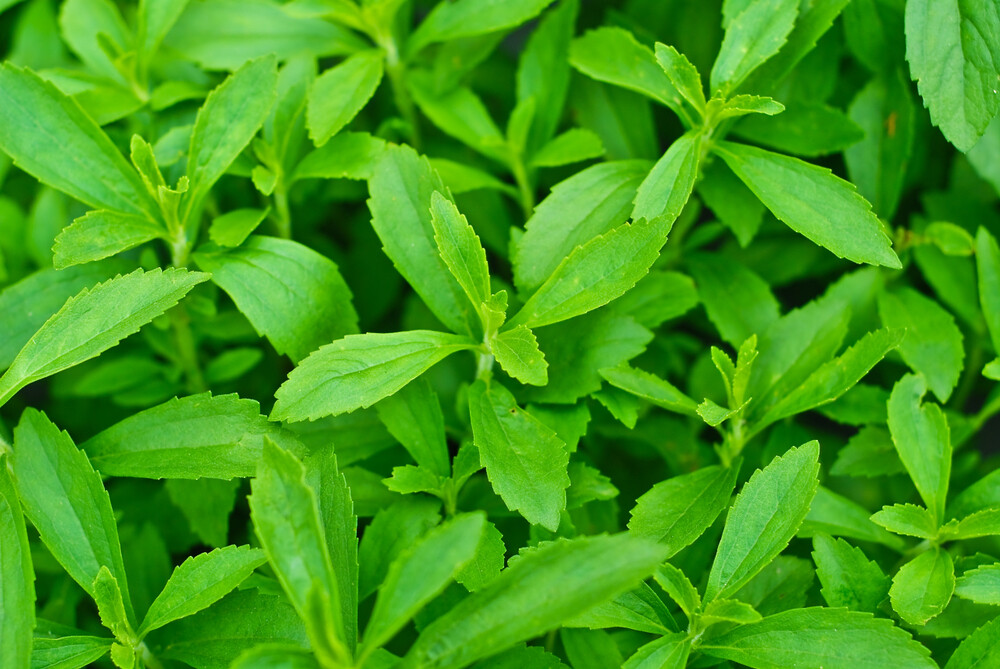
Crude Stevia extracts are potent sweeteners and have many benefits. It helps control sugar in the blood and other things, as mentioned below.
1. Sweetener: Packets of Stevia extract are a great sugar substitute for people looking to reduce their calorie intake or who have diabetes. It is about 200 times sweeter than sugar, so you only need a small amount to sweeten your food or beverages (2).
2. Diabetic Treatment: Stevia can help you control blood sugar levels in diabetic patients. It may also have anti-diabetic properties to manage blood glucose levels (2).
3. Weight loss: Stevia can help you lose weight by reducing your calorie intake and managing your lipid profile. It can also help to suppress your appetite (2).
4. Cosmetics: Some cosmetics use Stevia as a natural sweetener and flavoring. It is also used in toothpaste and mouthwashes to freshen breath (2).
5. Other Uses: Various forms of Stevia have also been used for other purposes, such as treating high blood pressure and improving athletic performance (2).
Is Stevia Safe?
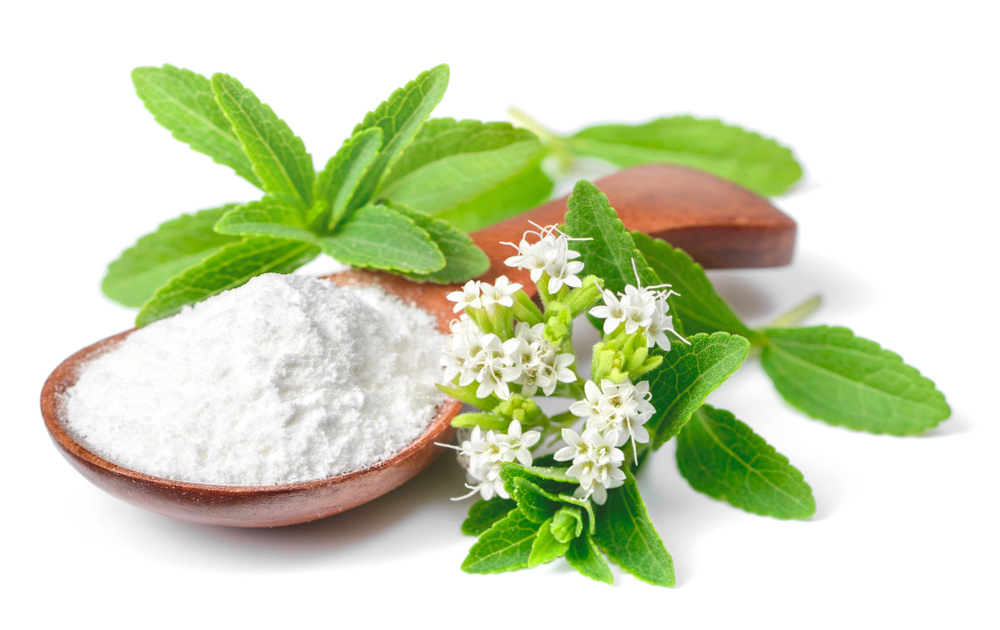
Stevia is generally considered safe for most people. However, some people may experience side effects such as nausea, vomiting, and diarrhea. One side effect of Stevia is that it can also interact with some medications. So, it is mandatory to talk to your doctor before using Stevia (3).
The Food and Drug Administration (FDA) approves two types of Stevia for use in food: rebaudioside A and stevioside. While they differ in taste they are both safe for consumption. You can also use stevia leaf extract from the approved plant. Studies show that Stevia may have some health benefits (4).
Side effects of Stevia
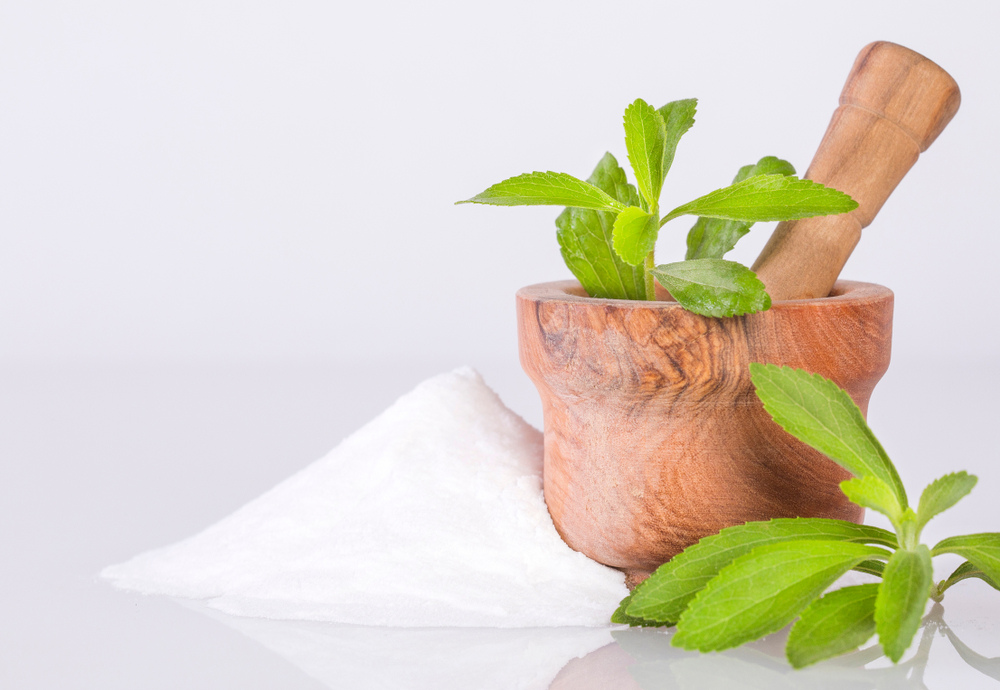
Stevia is a popular choice for people looking for a sugar-free sweetener. Stevia is generally considered safe for most people but some can also have health issues. Some Stevia side effects include:
1. Nausea: Some people may experience nausea after consuming whole-leaf Stevia. It is usually a mild side effect and goes away on its own. It often happens when you reach the bitter aftertaste (5).
2. Vomiting: In rare cases, Stevia can cause vomiting. It happens because the chemicals in the plant irritate the gut lining, causing vomiting. It could also be due to an allergic reaction to stevia (5).
3. Diarrhea: Stevia can also cause diarrhea and other digestive issues in some people. It is usually a mild side effect and goes away on its own. People who overconsume this plant may have diarrhea (5).
4. Headache: Some people may experience headaches after consuming Stevia. It is usually a mild side effect and goes away on its own (5).
5. Stomach Cramps: Stevia can also cause stomach cramps in some people. It is usually a mild side effect and goes away on its own (5).
6. Bitter Aftertaste: Stevia has a slightly bitter aftertaste that some people may find unpleasant. It is a common side effect of Stevia and poses no health risks. The compound responsible for giving it the sweet taste is Steviol Glycosides (5). When it finishes the leaves taste bitter.
7. Allergic Reactions: Although rare, some people may be allergic to Stevia. In such cases, the person can have adverse effects and develop rashes or redness on their lips and face (5).
8. Low Blood Sugar: Stevia can lower blood sugar levels in some people. It is essential for people with diabetes. They usually take medication to control their blood sugar levels, which may further fall with stevia consumption. This is one of the major side effects of stevia (6).
9. Interaction With Medications: Stevia can interact with some medicines, such as Digoxin and anti-diabetics. The flip side of this is that the medicine and stevia could lower blood sugar to fatal levels (6).
Dosage of Stevia
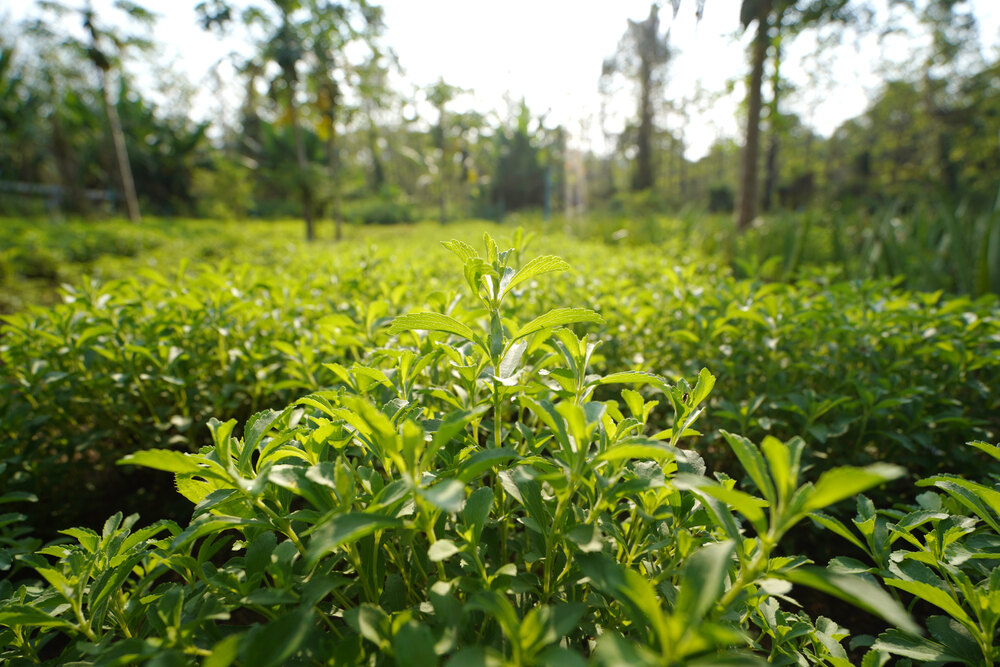
To find the proper dosage of Stevia, you must consult a doctor. While you add the crude extract to your tea and coffee, it is essential to know if using it in every meal is healthy.
You can also follow the below general guidelines for using Stevia mixture:
1. Stevia Leaves: Use the leaves of the stevia plant to make tea. The recommended dosage is 1-2 teaspoons of stevia leaves per cup of water. Leaves are easy to pluck and you can even keep a small plant in your house. Some people like to calculate their sugar intake per kilogram of body weight, but that is not the right approach.
2. Stevia Extract: Stevia extract is available in liquid, powder, and tablet form. Use only 1-2 drops of liquid stevia extract or 1/4 teaspoon of powder or tablets per cup of food or beverage.
3. Stevia-sweetened Products: You can buy stevia-sweetened food additives from the supermarket. Try the sodas, candy, and gum available in many stores. The recommended dosage for these products varies depending on the product.
It is essential to start with a small amount of Stevia and taste as you go. Stevia is very sweet, so you don't need to use it often.
Precaution to Take While Taking Stevia
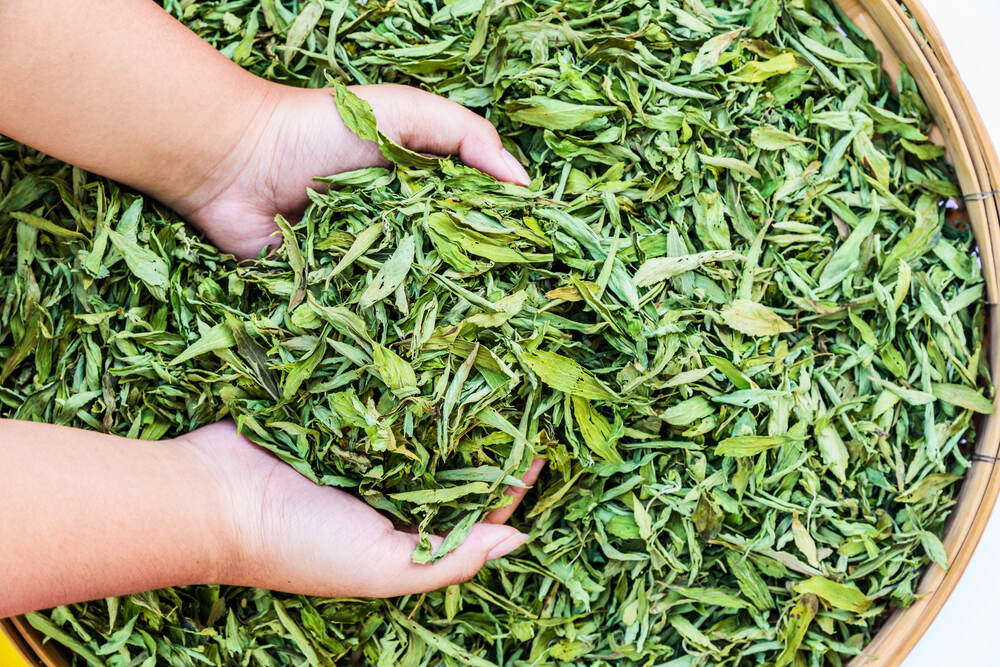
Eating stevia extract is beneficial for the body. As there are many side effects of stevia, you must be careful when using it. Here are some precautions to take while taking Stevia:
1. Start Small: Start with a small amount and taste as you go. Stevia is very sweet, so you don't need to use it often. You should also start by using it just once a day. It will help you understand its effect on your body better (6).
2. Bitter Aftertaste: Stevia can have a bitter aftertaste: Chewing stevia leaves for too long can have a bitter aftertaste and spoil your dessert. You can try mixing it with other fruit sugars. Try to chew the leaves only for a few seconds so that the bitter taste stays away.
3. Regulate Dosage: Stevia sweetener can interact with some medications: If you take any medications, you must talk to your doctor before using Stevia (6).
4. Professional Help: Stevia is not a substitute for medicines. If you are considering using Stevia for any purpose, it is essential to talk to your doctor first.
5. Children: Stevia is generally considered safe for children, but it is essential to start with a small amount and see how they react. You can also do a patch test on the child before giving the product. Avoid using over-the-counter Stevia for children.
6. People With Diabetes: Stevia can lower blood sugar levels in some people. If you already suffer from diabetes, use this product only after talking to your doctor. It may lower the blood sugar below normal and cause cardiac arrest (6).
Overall, Stevia is a safe and healthy sweetener for most people. However, it is essential to be aware of Stevia's potential side effects and talk to your doctor before using Stevia.
Stevia During Pregnancy
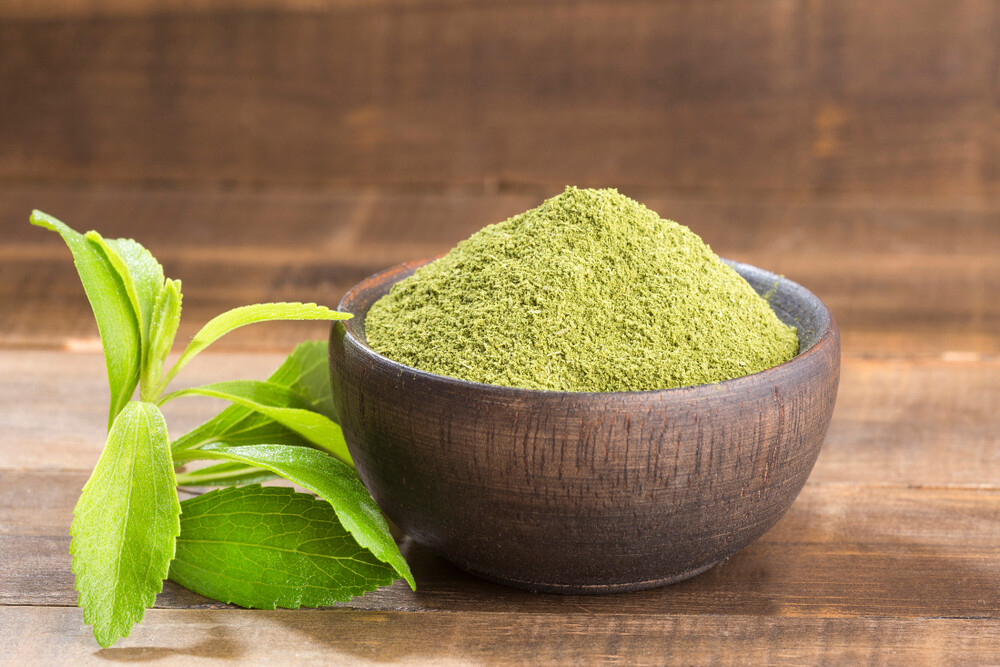
There is limited research on the safety of Stevia during pregnancy. The studies on Stevia for pregnant women have uncertain results. Some say it is safe, while others try to deny it (7).
The American Pregnancy Association (APA) states that Stevia or stevia extract is generally safe for pregnant women but in moderation. However, the APA also says pregnant women must talk to their doctor before using Stevia (7). However, the FDA has not banned Stevia either, and it is considered GRAS (generally recognized as safe) for use in food.
They can help you weigh Stevia's potential risks and benefits and decide if it is right for you. You may face the below side effects of stevia during pregnancy:
1. Low Blood Sugar: Stevia can lower blood sugar levels in some people. It is essential for pregnant women as low blood sugar can hamper the baby's development (6).
2. Birth Defects or Sterility: Some studies have shown that Stevia may increase the risk of birth defects in animals. Research also shows that stevia may also cause sterility in mice. It may also affect humans in the long run. (8).
3. Allergic reactions: Stevia can cause allergic reactions in some people. As a pregnant woman cannot take medication, having an allergic reaction could prove fatal to the baby and the mother (6).
Conclusion
While Stevia extract is a miracle find, it must be used with caution. People who are already on medication for diabetes or have a tendency to hypoglycemia may not use it at all. The side effects of Stevia are mainly focused on the interaction with medication. Some studies talk about blood clots due to the consumption of Stevia. But, this study used a plant with a slightly different composition. Stevia is a nonnutritive sweetener and its marketed version, Metabolite Steviol, reduces sugar spikes in the body. If you want to use this sweetener in your food, use a potted plant instead of the products sold over the counter. You should also consult with your doctor before starting it.
Contributor: Mary Sabat, RDN, LD, Ace Certified Trainer - Body Designs Ltd.
ALSO READ: Dangerous Side Effects of Sea Moss That You Need to Know





 JOIN OUR WHATSAPP CHANNEL
JOIN OUR WHATSAPP CHANNEL











































